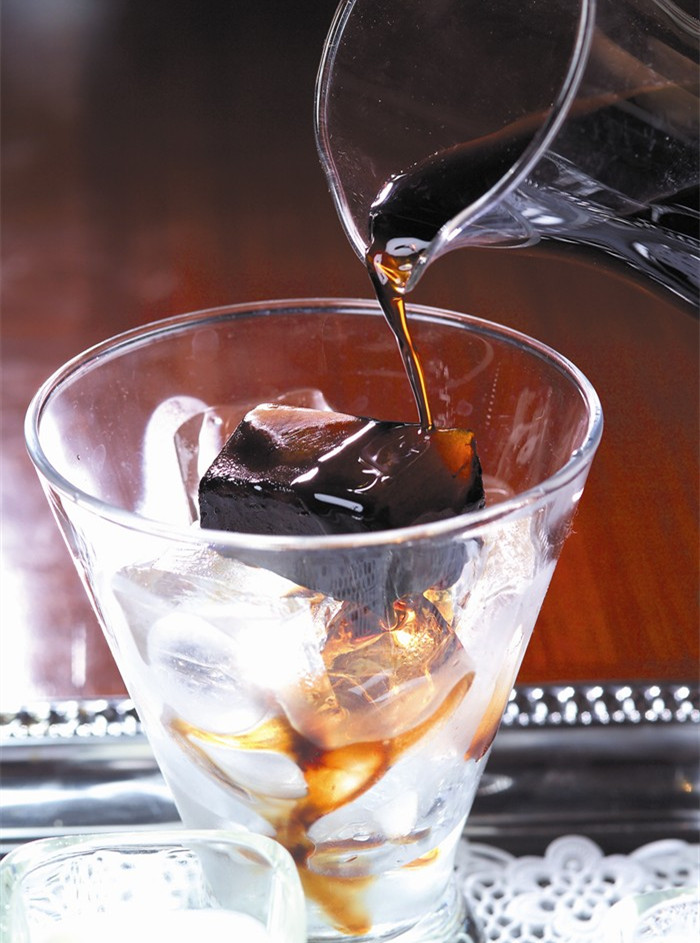Know caffeine, fine coffee, learn the basics of coffee.

Caffeine is a mild stimulant that contains less caffeine in our daily drinks such as tea, cocoa and chocolate. Caffeine is also found in carbohydrate drinks such as cola and some anesthetics. It can accelerate the metabolism of the human body and keep people clear-headed and sensitive. The refreshing effect of coffee is very popular.
Caffeine can stay inside the body for several hours, and the effect on the body is appropriate for each person. Some people will lose sleep after drinking coffee at night, while others will be nervous and overexcited if they drink too much coffee, but many people will not be affected at all.
Once we understand the body's response to caffeine, we can use it to meet our needs. Drinking a cup of delicious coffee before the exam or long-distance driving will certainly reduce fatigue.
The caffeine in coffee is insoluble in cold water, but easily soluble in hot water. It will stimulate the cerebral cortex, eliminate drowsiness, enhance the sense of touch and thinking and adjust the function of the heart, but also dilate kidney blood vessels, diuresis and so on. However, caffeine is not limited to coffee. Usually a cup of 100cc coffee contains caffeine 60~65mg, green tea has 200~300mg, black tea has 350~400mg, and cocoa has about 100mg. Excessive caffeine intake is prone to tinnitus, hyperfunction of the heart (the heart beats rapidly, the number of pulses increases), and the pulse is uneven, so you must drink coffee in moderation.
Important Notice :
前街咖啡 FrontStreet Coffee has moved to new addredd:
FrontStreet Coffee Address: 315,Donghua East Road,GuangZhou
Tel:020 38364473
- Prev

Middle-aged and elderly people who drink too much coffee in the morning may cause heart disease
Anna, professor at Brown University? Beilin reported in the journal Epidemiology that middle-aged and elderly people who drank little coffee had a significantly higher risk of stroke an hour after drinking coffee in the morning, and that there were more than three risk factors for heart disease, such as glycosuria.
- Next

The relationship between health and caffeine is it healthy to drink coffee?
There is no data to show that caffeine or drinking coffee is harmful to your health. On the contrary, some studies have shown that caffeine is good for human health. People often ask: how much coffee is too much? In fact, it all depends on the individual's bearing capacity and habits. A cup of coffee contains an average of 60 to 90 milligrams of caffeine, while the average human body consumes nearly 500 to 600 milligrams of caffeine a day.
Related
- Beginners will see the "Coffee pull flower" guide!
- What is the difference between ice blog purified milk and ordinary milk coffee?
- Why is the Philippines the largest producer of crops in Liberia?
- For coffee extraction, should the fine powder be retained?
- How does extracted espresso fill pressed powder? How much strength does it take to press the powder?
- How to make jasmine cold extract coffee? Is the jasmine + latte good?
- Will this little toy really make the coffee taste better? How does Lily Drip affect coffee extraction?
- Will the action of slapping the filter cup also affect coffee extraction?
- What's the difference between powder-to-water ratio and powder-to-liquid ratio?
- What is the Ethiopian local species? What does it have to do with Heirloom native species?

